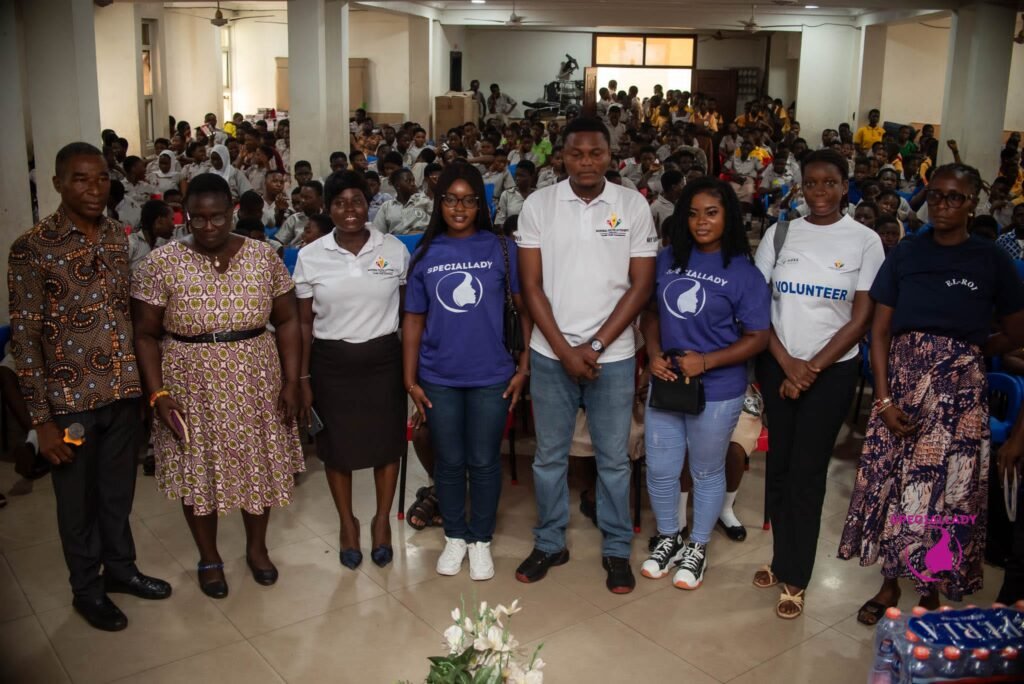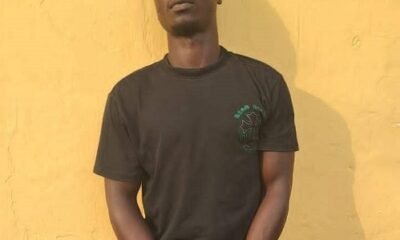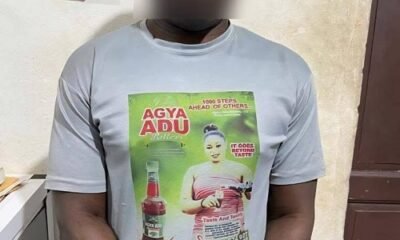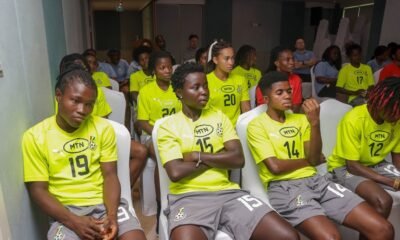News
Elizabeth Amoaa, the changemaker in women’s health

In the global conversation around health equity, few voices resonate as powerfully as that of Elizabeth Amoaa.
Her work transcends advocacy; it is a live commitment to ensuring that women and girls around the world are not left behind when it comes to reproductive health and education.
Elizabeth’s journey began not in a boardroom or a conference hall, but within the deeply personal landscape of her own medical challenges.
Living with uterus didelphys, a rare condition where a woman is born with two wombs, sometimes two cervixes and rarely two vagina canals, Elizabeth faced years of medical misunderstanding, misdiagnosis and silence.
Her eventual diagnoses of endometriosis and fibroids came only in her thirties, after years of suffering in silence.

Rather than retreat into bitterness or despair, Elizabeth found clarity in purpose.
That purpose would grow into Special Lady Awareness in Ghana and Special Lady Awareness Global Charity in UK, an initiative she launched to break long-held taboos surrounding gynaecological health.
With chapters in both the UK and Ghana, her organisations have become a lifeline for thousands of women and girls, offering education, advocacy and practical support in spaces where reproductive health is still whispered about, if acknowledged at all.
Through health forums and medical partnerships, Elizabeth has taken a once-private struggle and transformed it into a movement.
In the UK, she collaborates with civic leaders and medical professionals to host community education sessions, shining a light on complex conditions like endometriosis, fibroids etc.
In Ghana, her impact is felt directly through the donation of medical supplies, menstrual hygiene products and health workshops that reach deep into underserved communities.
Her leadership goes beyond logistics. It’s in the storytelling, the courage to write books like The Unspoken Identity – The Woman with Two Vaginas, now used as an educational tool in schools across continents.
It’s in her policy engagement, as she contributes to research projects like the UK’s Endo1000 project initiative and in her service roles, including past president of the Rotary Global Hub, now direct membership of Rotary Great Britain and Ireland.
But above all, Elizabeth’s influence lies in her refusal to let any woman feel alone in her health journey.
Her story reminds us that healthcare justice is not just about clinical access but it’s about dignity, representation and truth.
By confronting cultural stigma and empowering others to speak up, Elizabeth has shifted narratives and opened doors that had long been closed to countless women.
Her work invites us all to consider: What if reproductive health education were truly inclusive? What if access to basic supplies like sanitary pads didn’t depend on social background? What if every girl grew up understanding her body without fear or shame?
Elizabeth Amoaa is not just asking these questions rather, she’s building the answers.
Every voice counts. Every step forward matters. And in the movement that Elizabeth leads, there is space for everyone willing to stand for change.
Let us stand together and create a world where reproductive health is not hidden in whispers, but embraced with compassion, knowledge and support.
A world where women are seen, heard and healed.
News
Man sentenced to 25 years for robbery at Manso Akwasiso

A 30-year-old man has been sentenced to 25 years imprisonment with hard labour by the Bekwai Circuit Court for his role in a 2022 robbery at a mining site at Manso Akwasiso in the Ashanti South Region.
The convict, Dominic Ofori, also known as Fanta, was arrested on 16th February 2026 after years on the run. He pleaded guilty before the Bekwai Circuit Court to robbery contrary to Section 149 of the Criminal Offences Act, 1960 Act 29, and was accordingly sentenced to 25 years imprisonment with hard labour.
On March 20, 2022, the Manso Adubia District Police received intelligence that a group of armed men from Manso Abodom were planning to attack a mining site at Manso Akwasiso to rob the owner of gold concentrate. Acting on the information, police mounted a coordinated operation and laid an ambush at the site.
At about 5:30 pm the same day, four-armed men arrived at the site, fired indiscriminately, and robbed the miners of their gold concentrate. The police team on surveillance intervened, resulting in an exchange of gunfire.
Three of the suspects, Abu Abubakar, Musah Latif, and Gideon Takyi, sustained gunshot wounds and were pronounced dead on arrival at St Martins Catholic Hospital at Agroyesum. Dominic Ofori escaped at the time but was later arrested and put before the court.
The Ashanti South Regional Police Command has assured the public of its continued commitment to combating violent crimes and bringing offenders to justice.
News
Ashanti police arrest man for publishing false news on TikTok

The Ashanti Regional Police Command has arrested 45-year-old Isaac Boafo, also known as “Duabo King,” for allegedly publishing false news intended to cause fear and panic.
Police said the arrest follows a viral TikTok video in which Boafo claimed that four officers at the Central Police Station in Kumasi engaged in inappropriate conduct with commercial sex workers during night patrols in Asafo.
Officers from the Police Intelligence Directorate (Ashanti Region) apprehended Boafo after receiving intelligence about the video.
During questioning, he admitted to creating the video to attract views and engagement online, and acknowledged that he could not prove the allegations.
Boafo also admitted making comments about the President of the Republic for content purposes and could not defend those statements.
He has been formally charged and is in detention as investigations continue.
The Ashanti Regional Police have warned the public against publishing or sharing false information on social media, noting that such acts can cause fear, panic, and damage reputations.
They said anyone found engaging in similar conduct will face legal action.
By: Jacob Aggrey














